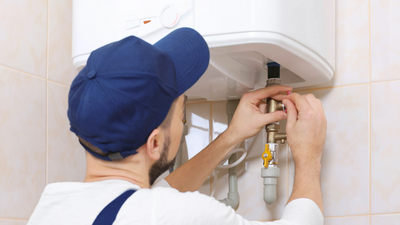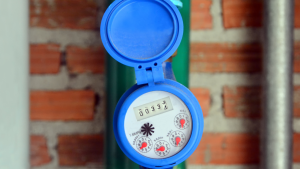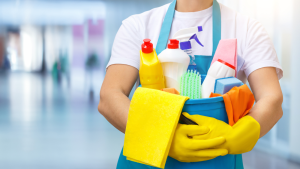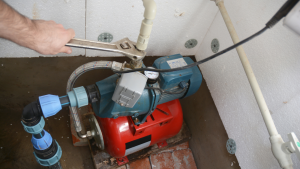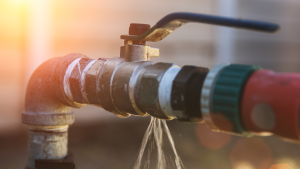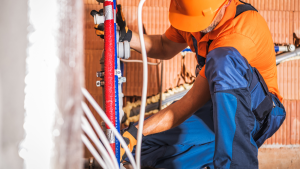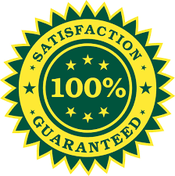Key Takeaway:
- Proper water heater maintenance is essential for ensuring a reliable hot water supply, improving efficiency, and extending the lifespan of your appliance. Whether it’s a tank-type, tankless, or solar-powered system, regular maintenance like flushing the tank, checking the anode rod, and addressing issues early can prevent breakdowns and save on energy costs. Knowing when to call a professional for more complex repairs ensures both safety and optimal performance
Water heaters are integral to modern homes, powering essential daily activities like bathing, cooking, and cleaning. Whether it’s taking a hot shower or running the dishwasher, the availability of hot water is something many of us take for granted—until it’s suddenly unavailable. Proper water heater maintenance ensures a continuous hot water supply and maximizes the appliance’s efficiency, safety, and lifespan.
This comprehensive guide will examine the several kinds of water heaters, their benefits and drawbacks, and how proper maintenance can extend their life and reduce energy bills. We’ll also cover signs indicating your water heater may need repair, important safety considerations, and why seeking professional help is crucial.
Types of Water Heater Maintenance
There are several varieties of water heaters on the market today, each with its own advantages. The type of water heater you choose will depend on your household’s hot water demand, space availability, and energy efficiency preferences.
1. Tank-Type Water Heaters
Overview
Tank-type water heaters are the most common type found in homes. These heaters have a large insulated tank that stores heated water until needed. The water is kept at a pre-set temperature, typically between 120°F and 140°F, ready for use at any time.
Key Features
- Storage Capacity: These units store a large volume of water (ranging from 20 to 80 gallons), ensuring a steady hot water supply for household needs.
- Heating Mechanism: The water is continuously warmed to maintain its temperature by gas burners or electric elements located inside the tank.
- Recovery Rate: speaks of the speed at which the heater can heat more water after depleting the hot water supply. This is critical for households with high hot water demand.
Benefits and Drawbacks
- Installation Space: They require ample space, usually installed in basements or garages.
- Durability: Regular maintenance, such as flushing out sediment, is essential to prevent corrosion and extend lifespan.
- Cost: While tank-type water heaters are cheaper to install initially, they are less energy efficientin contrast to more recent models, which may result in greater energy bills over time.
Maintenance Tips
- Annual Flushing: Every year, flush the tank to get rid of sediment. which can decrease efficiency and corrode the tank over time.
- Anode Rod Check: Inspect the anode rod every two years and replace it if it’s corroded. This rod prevents rust from eating away at the tank lining.
2. Tankless (On-Demand) Water Heaters
Overview
Unlike traditional water heaters, tankless units heat water only when needed. Water passes through a series of coils or heating elements that warm it instantly, providing hot water that is always flowing without being kept in a tank.
Key Features
- Energy Efficiency: Since there’s no need to keep a tank of water hot all the time, tankless heaters are far more energy-efficient, reducing standby energy loss.
- Unlimited Hot Water: Provides an on-demand hot water supply, making it ideal for larger families or homes with high peak water usage.
Benefits and Drawbacks
- Compact Design: Their small size allows for installation in tight spaces and can even be mounted on walls.
- Lifespan: With proper maintenance, tankless water heaters typically last longer than tank models—up to 20 years.
- Initial Costs: While they offer long-term savings on energy bills, tankless heaters are more expensive to purchase and install upfront.
Maintenance Tips
- Descaling: Mineral buildup can decrease efficiency. Descaling the unit annually ensures it runs smoothly, especially in areas with hard water.
- Air Filter Cleaning: If the unit has an air filter, clean it regularly to ensure proper airflow and prevent overheating.
3. Heat Pump Water Heaters
Overview
Heat pump or hybrid water heaters transfer heat from the surrounding air or ground to heat the water. These models are significantly more energy-efficient than conventional electric water heaters.
Key Features
- Energy Source: It uses electricity to move heat rather than generate it, making it far more efficient.
- Dual Operation: Switching heat pump and electric resistance modes when needed allows it to operate efficiently in different climates.
Benefits and Drawbacks
- Energy Efficiency: These units use up to 60% less electricity than standard electric water heaters, drastically reducing utility bills.
- Cooling Effect: Since they pull heat from the air, they can cool the surrounding area, which can be beneficial in warm climates but less efficient in colder areas.
Maintenance Tips
- Clean Air Filters: Like HVAC systems, heat pump water heaters have air filters that need regular cleaning to ensure efficient operation.
- Location Matters: Ensure the heater is installed in an area with enough space and airflow, such as a garage or utility room.
4. Solar-Powered Water Heaters
Overview
Solar water heaters use solar panels, known ascollectors, which take in sunlight and produce heat from it to warm the water. These systems are eco-friendly and can significantly reduce reliance on conventional energy sources.
Key Features
- Solar Collectors: Installed on roofs or other sunny locations, these panels capture sunlight and transfer the heat to a storage tank.
- Backup System: Since sunlight isn’t always available, most solar water heaters have a backup system, either electric or gas-powered, to ensure hot water is always available.
Benefits and Drawbacks
- Environmentally Friendly: Reduces carbon emissions by utilizing renewable energy.
- High Initial Cost: Solar water heaters are expensive to install, but the energy bill savings may offset the initial investment over time.
Maintenance Tips
- Inspect Solar Collectors: Regularly check for dirt or debris that may block sunlight and reduce efficiency.
- Check the System for Leaks: Ensure all valves and pipes are intact to prevent leaks, which can impact water pressure and heating.
Unsure whether to repair or replace your water heater? Click here for a complete guide that breaks down when it’s time for a fix or a full replacement, and keep your home’s hot water running efficiently!
5. Condensing Water Heaters
Overview
Condensing water heaters are highly efficient gas-powered models that use waste heat from exhaust gases to further heat the water. They operate at efficiency levels above 90%.
Key Features
- Heat Recovery: Captures waste heat from the gas exhaust, which is then reused to heat the water, reducing energy consumption.
- Fuel Versatility: They can run on natural gas, propane, or oil, giving homeowners flexibility in fuel choice.
Benefits and Drawbacks
- Lower Operating Costs: While these units are more expensive up front, their higher efficiency results in significant long-term energy savings.
- Installation Space: Condensing water heaters are more significant and require more space, which can be a drawback for homes with limited room.
Maintenance Tips
- Condensate Drain: Verify that the condensate drain is unobstructed and functioning to prevent blockages that could cause water damage or reduced efficiency.
- Annual Inspection: A professional should inspect the flue and heat exchanger annually to ensure the system operates safely.
6. Point-of-Use Water Heaters
Overview
Point-of-use water heaters are small units installed near faucets or appliances to provide instant hot water. They are typically used with a central water heater or for isolated areas like bathrooms or outdoor sinks.
Key Features
- Compact Size: These units are small and easily installed under sinks or closets.
- Immediate Hot Water: Since the water is heated at the point of use, there is no delay in getting hot water from a distant central unit.
Benefits and Drawbacks
Energy Efficient: They minimize energy waste by heating only the water needed for a specific location.
Best For Ideal for isolated areas where waiting for hot water from a central heater would be inconvenient.
Maintenance Tips
- Regular Use: Make sure to use the unit regularly to avoid stagnant water buildup that could lead to contamination or mold.
- Check for Leaks: Even minor leaks can significantly impact their efficiency due to their smaller size.
Recognizing the Signs of Water Heater Trouble
To guarantee your water heater continues to function properly order, it’s important to recognize the warning signs of potential problems:
- Leaks: Water pooling around the unit often indicates internal corrosion or faulty connections.
- Inconsistent Hot Water: The thermostat or heating elements may need repair or replacement if your water temperature fluctuates.
- Discolored Water: Rusty or cloudy water is a sign that the inside of the tank is rusting.
- Odd Noises: Rumbling or popping sounds indicate sediment buildup inside the tank, reducing efficiency and potentially causing damage.
Essential Water Heater Safety Considerations
Maintaining your water heater is not just about efficiency but also safety. Here are a few critical safety tips:
- Water Temperature: Set the water heater thermostat to a safe temperature, usually around 120°F, to prevent scalding.
- Ventilation: Ensure proper ventilation for gas-powered water heaters to avoid carbon monoxide buildup.
- Clearance: Maintain adequate space around the unit for safety and ease of access during maintenance.
Regular Water Heater Maintenance Routine
In proactive water heater maintenance, failures can be avoided. and extend the lifespan of your water heater. Here’s a suggested maintenance routine:
- Regular Inspections: Inspect your water heater every two months for leaks, odd noises, or corrosion.
- Flushing the Tank: Flush the tank at least once a year to remove sediment and maintain efficiency.
- Anode Rod Check: Inspect and replace the anode rod if it shows signs of corrosion to prevent rust
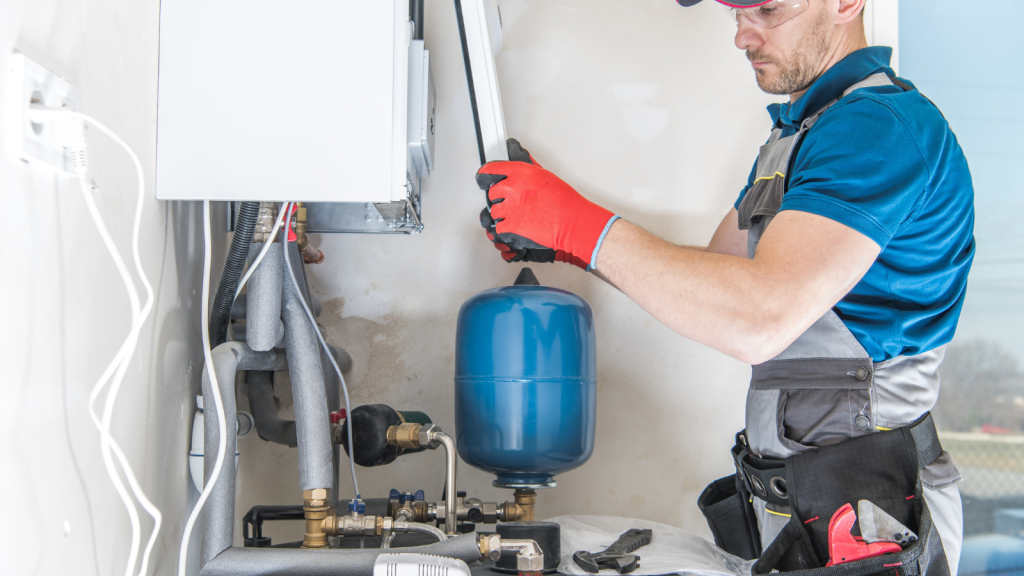
When to Call a Pro
While regular maintenance can address many issues, there are times when professional help is necessary. If you encounter complex repairs or major problems beyond your skill level, it’s best to call at BJC Plumber in North Bergen. Critical situations that require professional attention include significant leaks that could cause serious damage and electrical problems that should be handled by a licensed electrician.
For gas water heaters, it’s especially important to leave repairs to professionals, as issues with gas connections or pilot lights can be hazardous. Additionally, severe tank rust or complex mechanical problems are best diagnosed and fixed by an expert. Prioritizing safety and recognizing when to seek professional help will ensure your water heater operates efficiently and lasts longer.
Maintaining your water heater properly is key to its longevity and performance. Understanding different types of water heaters, being alert to potential warning signs, and following a regular maintenance schedule will ensure consistent hot water, enhance safety, and improve energy efficiency. By giving your water heater the attention it needs, you’ll save money in the long run while making your home more eco-friendly and comfortable.

